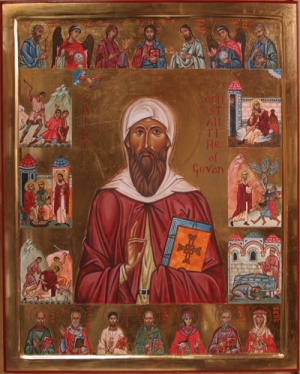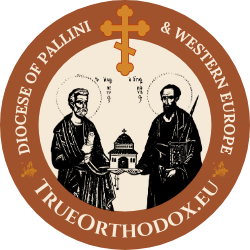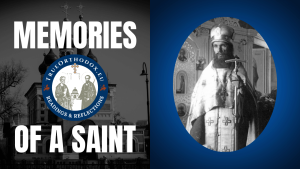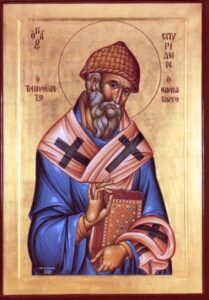St. Constantine of Cornwall

source: orthodoxwiki
Saint Constantine of Cornwall, also Constantine of Dumnonia, Constantine III of Britain, Saint Custennin, Custennin ap Cado, Custennin ap Cadwr, Costentyn or Constantine of Govan (ca. 520-576 AD) is a 6th-century Cornish saint that is identified with a minor British king Constantine, who came to repentance at St Davids monastery in Wales, after a life of vice. It is maintained that he went from Wales to Ireland, and from there went as a missionary to the Picts in Scotland, where he was martyred by pirates at Cantyre (Kintyre); however, there are difficulties with this latter part of his hagiography involving a conflation of events with one (or two) other ‘Constantines’.
It is possible that the British king (†576) is not the same person as the Scottish martyr (†576, or †590). To add to the ambiguity there is another saint from a slightly later period, King Constantine of Strathclyde (†640), whose feast day is on March 11 as well, but who is said to have reposed in peace (i.e. not martyred), and whose life has been inextricably conflated with the Scottish king-martyr. Therefore the traditions of St. Constantine of Cornwall (identified with the Scottish martyr of the same date), and St. Constantine of Strathclyde are very much confused. Canon G.H. Doble in his Cornish Saints says that “the name has given rise altogether to one of the most fearful series of muddles in the whole history of hagiography.”
Constantine of Cornwall probably succeeded his father, Cador, as King of Dumnonia in the early 6th century. Literary tradition indicates AD 537, after the Battle of Camlann from which, some sources say, “Sir Constantine” was the only survivor. He is reputed to have been married to the daughter of the King of Brittany and to have led a life full of vice and greed until he was led to conversion by Saint Petroc:
One day, while out hunting a deer, his prey took shelter in St. Petroc’s cell. So impressed was the King by the saint’s power that he and his bodyguard immediately converted to Christianity. Constantine gave Petroc an ivory hunting horn in commemoration of the event and this was long revered along with the Saint’s other relics at Bodmin. The King became a co-founder of this famous Cornish monastery.
After the death of his queen, he resigned the crown to his son, in order to take up the religious life himself.
He moved amongst his people, founding churches at the two Constantines, near Padstow and Falmouth, and at Illogan; also at Milton Abbot and Dunsford in Devon. Later, he traveled across the Bristol Channel to join St. Dewi (David) at Mynyw (St. Davids), where he resided as a monk for many years. He founded the church at Cosheston, near Pembroke, but eventually settled as a hermit in Costyneston (Cosmeston) near Cardiff. He may have died there, though there are persistent stories that he traveled still further north and preached to the people of Galloway before being martyred in Kintyre on 9th March AD 576.
“The Scottish Breviaries commemorate on March 11th the Feast of Saint Constantine, Martyr. He is said to have been a prince who, after the death of his princess, retired from the world, and, having resigned his kingdom to his son, became a monk in the Monastery of Saint David’s. Going afterward to Ireland, he entered a religious house at St. Carthag at Rathene, where, unknown to any, he served for four years at a mill, until his name was discovered. He was then fully instructed, ordained priest, and sent as a missionary to the Picts in Scotland. Having for many years laboured with Saint Columba for their conversion, he established a religious community of men at Govan, and converted the inhabitants of Cantyre to Christianity. At length the happiness he so long desired came to him in his advanced age; he was slain by infidels actuated by hatred of the Christian religion.”[6]
Hymns
Troparion – Tone 5
Grieving at the loss of thy young spouse,
thou didst renounce the world, O Martyr Constantine,
but seeing thy humility God called thee to leave thy solitude and serve Him as a priest.
Following thy example,
we pray for grace to see that we must serve God as He wills
and not as we desire,
that we may be found worthy of His great mercy.
Kontakion – Tone 4
Thou wast born to be King of Cornwall,
O Martyr Constantine,
and who could have foreseen that thou wouldst become the first hieromartyr of Scotland.
As we sing thy praises, O Saint,
we acknowledge the folly of preferring human plans to the will of our God.








